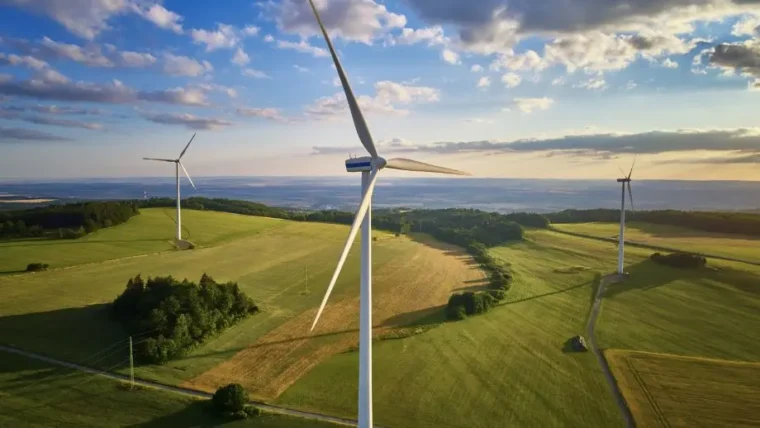Fortnightly Bulletin – 23rd January 2023
23 January 2023

Legal Updates
Environment Act 2021: Legally binding targets for England
Six draft Regulations published in December 2022, under the Environment Act 2021, define legally-binding environmental targets for England. The Regulations also set out how progress will be measured.
Click the links below for more information on the draft Regulations and all of their associated targets:
- The Environmental Targets (Residual Waste) (England) Regulations 2022
- By 31/12/2042, the total mass of residual waste for the calendar year 2042 must not exceed 287kg per head of population in England.
- The Environmental Targets (Fine Particulate Matter) (England) Regulations 2022
- By 31/12/2040, the annual mean level of PM2.5 in ambient air needs to be less than 10 µg/m³.
- The Environmental Targets (Biodiversity) Regulations (England) 2022
- By 2030, species population decline will need to be halted.
- By 31/12/2042, species populations will need to be increased by at least 10% above 2030 levels.
- The Environmental Targets (Woodland and Trees Outside Woodland) Regulations (England) 2022
- By 31/12/2050, at least 16.5% of all land in England will need to be covered by woodland and trees outside woodland.
- The Environmental Targets (Water) Regulations (England) 2022
- By 31/12/2028, the load of total phosphorus discharged into freshwaters from sewage disposal works needs to be at least 80% lower than a 2020 baseline.
- The Environmental Targets (Marine Protected Areas) Regulations (England) 2022
- By 31/12/2042, 70% of designated features in Marine Protected Areas will need to be restored to favourable condition.
Guidance
Using unbound Incinerator Bottom Ash Aggregate (IBAA) in construction activities: RPS 247
This regulatory position statement (RPS) does not change the legal requirement to get an environmental permit for waste and groundwater activities when using IBAA in:
However, the Environment Agency will not normally take enforcement action when this is carried out without a permit, if the requirements in this RPS are complied with.
This enforcement position does not apply to any other legal requirements.
To read more about this RPS, click here.
Source: gov.uk
Storing contaminated waste waters from gas pipelines: RPS 100
This RPS does not change the legal requirement to have an environmental permit for a waste operation when storing more than 1,000 litres of contaminated waste waters removed from gas pipelines.
However, the Environment Agency will not normally take enforcement action when this is carried out without an environmental permit if the requirements in this RPS are complied with.
This enforcement position does not apply to any other legal requirements.
To read more about this RPS, click here.
Source: gov.uk
Managing pesticide washings by evaporation: RPS 165
This RPS does not change the legal requirement to have an environmental permit when pesticide washings are treated using a purpose-built lined evaporation system.
However, the Environment Agency will not normally take enforcement action when this is carried out without an environmental permit, if the requirements in this RPS are complied with.
This enforcement position does not apply to any other legal requirements
To read more about this RPS, click here.
Source: gov.uk
Water resources licences: when and how you are charged
In 2022, guidance has been produced regarding the types of charges for water resources licences. The guidance explains supplementary and time and materials charges, plus how to work out the:
The document also explains how to pay the charge.
The guidance has been updated with changes to the definitions of each type of licence variation application, explains how to ask for abatement of annual charges and how the Environment Agency will work out application charges for transfer re-abstract schemes.
To read more on this guidance, click here.
Source: gov.uk
Packaging Waste: Prepare for Extended Producer Responsibility
In 2022, guidance was produced on how UK organisations can prepare for extended producer responsibility (EPR) for packaging.
The regulations will apply to all UK organisations that handle and supply packaging to consumers and to businesses. Those affected by the new extended producer responsibility (EPR) for packaging, will need to report packaging data. This means the correct packaging data will need to start to be collected from 1 January 2023.
Packaging data will need to be reported if all the following apply:
- An individual business, subsidiary or group (but not a charity):
- has an annual turnover of £1 million or more (based on the most recent annual accounts),
- is responsible for over 25 tonnes of packaging in a calendar year (January to December),
- carries out any of the packaging activities.
This guidance has been updated to add a link to the compliance scheme public register.
To read more on this updated guidance, click here.
Source: gov.uk
Energy Security Bill: Policy statements and draft regulations
In 2022, policy statements and indicative draft statutory instrument regulations relating to the Energy Security Bill introduced to Parliament on 6 July 2022, were produced.
The Policy Statement Oil and Gas Environmental Protection has recently been added.
To read more on these policy statements, click here.
Source: gov.uk
Articles of Interest
Government to dupport British industry in cutting fossil fuels with £32.5 Million
British industrial sectors including construction, mining and quarrying, will be supported in their plans to develop greener technologies and low carbon fuels, as the government backs industry with a £32.5 million funding package to cut reliance on fossil fuels and boost energy resilience.
The funding announced Friday the 20th of January will help these industries move away from using red diesel, also known as gas oil, which is a type of fossil fuel commonly used for off-road, heavy-duty vehicles and machinery, such as bulldozers and cranes.
The funding is being made available through the second phase of the Red Diesel Replacement Competition, which supports projects that seek to develop red diesel alternatives. The £32.5 million package will support three to five demonstration projects that participated in Phase 1 of the programme.
This funding follows another funding package of £6.7 million, provided to 17 winners under Phase 1 of the competition, in areas covering electrification, e-fuels and green hydrogen, as well as technologies that capture and store energy which would ordinarily be wasted from a vehicle or machine.
The announcement forms part of the £1 billion Net Zero Innovation Portfolio, which helps to accelerate the commercialisation of low-carbon technologies, systems and business models in power, buildings, and industry.
To read the full article, click here.
Source: gov.uk
Fines and Prosecutions
Hampshire company fined for operating illegally at Wiltshire farm
A waste management company has been fined more than £72,127 and ordered to pay £9,827.15 after treating sewage without a permit, despite knowing that they were acting illegally.
The company was contracted to treat sewage waste at a farm in Wiltshire. However, a 2020 investigation by the Environment Agency found that the company did not have the legally-required permits to screen the sewage before it entered the tank ready for spreading on the land. A skip at the farm contained sewage “rag,” including gloves and plastic.
In a written submission, the company accepted that no permit was in place at the site for the screening and removal of debris before storage and later injection of the sludge into the land. They described this as an “oversight.” However, the company had previously applied for a judicial review of what constituted treatment requiring a permit in relation to section 3 exemptions, and whether the removal of rag was, in fact, a treatment requiring a permit.
In a judgment handed down in February 2019, Lady Justice Rafferty concluded: “The screening process carried out by the claimant to remove debris from the sludge is unquestionably a form of treatment,” and that… it was not particularly burdensome to arrange for the screening of debris in sludge at an appropriately-permitted treatment facility.
Click here to read more about this fine.
Source: gov.uk
Online Learning and Events
CIWEM flood risk webinar
1st February 2023 16:00-17:00
This webinar will explore Fathom’s Climate Change framework – CIWEM’s latest methodology for translating climate model outputs into relevant metrics for flood modelling. It is for engineers and water professionals who want to better understand how large-scale models factor in future flood risk.
Futurebuild
7th – 9th March 2023
Futurebuild provides the stage for inspiring ideas, innovative solutions and knowledge sharing to drive sustainable construction. Your free ticket will give you access to over 400 brands, never seen before innovations, the world-class conference programme and inspirational seminar content curated by over 90 industry partners.








